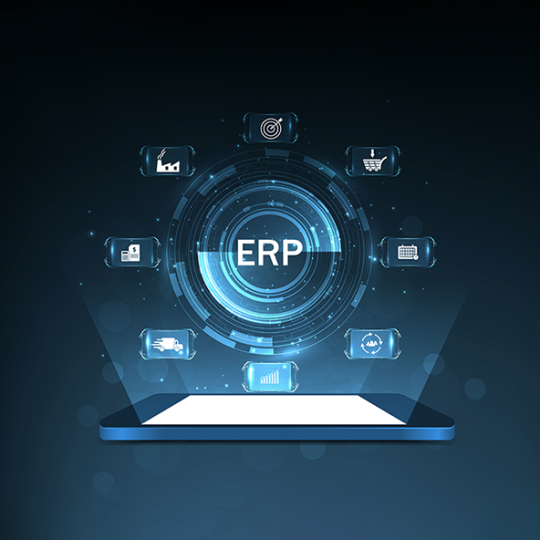#E-commerce Integration
Text
Boost Your Business with SMSGatewayCenter's WhatsApp Business Solution
Discover SMSGatewayCenter's comprehensive WhatsApp Business Solution. Effortlessly set up your WhatsApp store, enhance customer engagement, and build brand credibility with green tick verification. Seamlessly integrate with popular CRMs, e-commerce platforms, and more. Visit smsgatewaycenter.com today.
Visit https://www.smsgatewaycenter.com/site/whatsapp_business_solutions/
#WhatsApp Business Solution#WhatsApp Store Setup#Customer Engagement#Green Tick Verification#SMSGatewayCenter#CRM Integration#E-commerce Integration#Automated Messaging#Multi-agent Support
1 note
·
View note
Text

Delve into Twitter's exploration of new monetization models and its efforts to enhance its advertising platform, uncovering strategies for increased revenue and a sustainable future.
#Twitter Monetization#Advertising Platform#Revenue Generation#Twitter Blue#E-commerce Integration#Data Monetization#Targeting and Measurement#New Ad Formats#Transparency#digital marketing
0 notes
Text
NTL of NYC
Website : https://ntlofnyc.com
Address : 3811 Ditmars Blvd, Queens, NY 11105
Phone : +1 917-475-0101
NTL of NYC is a leading provider of digital marketing solutions for local businesses
all over the United States . We specialize in helping businesses establish a strong online
presence, from e-commerce and landing page design to lead generation and online advertising.
Our team of experienced professionals works closely with clients to understand their unique
needs and goals, and to develop tailored strategies that help them achieve their business
objectives.
In addition to our digital marketing services, we also focus on helping service industries such as
local moving companies, garage door repair, plumbing, cleaning services, handyman, and many
others to generate more leads and grow their businesses. Our services include website design
and development, search engine optimization (SEO), social media marketing, pay-per-click
(PPC) advertising, and more.
At NTL of NYC, we are committed to delivering exceptional results and providing our clients with
the tools and resources they need to succeed in today's competitive online marketplace.
Contact us today to learn more about how we can help your business thrive online.
#Local business solutions#Lead generation services#Service industry growth#E-commerce integration#Landing page design#Social media marketing#Niche-targeted marketing#Local SEO services#Custom website development#Business branding#Reputation management#Conversion rate optimization.
1 note
·
View note
Text
JavaScript for Advanced Analytics and Enhanced Ecommerce Tracking

2 notes
·
View notes
Text

Elevate your digital presence with our Web App Development Services Company in India. As a leading Website Development Services Company, we specialize in crafting tailored solutions that align with your business goals. From conceptualization to deployment, our team ensures a seamless and high-performance app experience for your users so they can partner with us to bring your web app vision to life and stand out in the Indian market.
#swayam infotech#web development#web application#website development#website design#web design company#web application development#e-commerce website development#website design and development#PHP website development#website application development#website application design and development#payment gateway integration#shopping cart web application#e-commerce solutions#offshore software development#custom web development#website developer#affordable website development#web development company#a website development company
3 notes
·
View notes
Text
85% of Australian e-commerce content found to be plagiarised

Optidan Published a Report Recently
OptiDan, an Australia-based specialist in AI-driven SEO strategies & Solutions, has recently published a report offering fresh insights into the Australian e-commerce sector. It reveals a striking statistic about content across more than 780 online retailers: 85% of it is plagiarised. This raises severe questions about authenticity and quality in the e-commerce world, with possibly grave implications for both consumers and retailers.
Coming from the founders of OptiDan, this report illuminates an issue that has largely fallen under the radar: content duplication. The report indicates that suppliers often supply identical product descriptions to several retailers, resulting in a sea of online stores harbouring the same content. This lack of uniqueness unfortunately leads to many sites being pushed down in search engine rankings, due to algorithms detecting the duplication. This results in retailers having to spend more on visibility through paid advertising to compensate.
Key Findings in Analysis
Key findings from OptiDan's research include a worrying lack of originality, with 86% of product pages not even meeting basic word count standards. Moreover, even among those that do feature sufficient word counts, Plagiarism is distressingly widespread. Notably, OptiDan's study presented clear evidence of the detrimental impacts of poor product content on consumer trust and return rates.
Founder and former retailer JP Tucker notes, "Online retailers anticipate high product ranking by Google and expect sales without investing in necessary, quality content — an essential for both criteria." Research from 2016 by Shotfarm corroborates these findings, suggesting that 40% of customers return online purchases due to poor product content.
Tucker's industry report reveals that Google usually accepts up to 10% of plagiarism to allow for the use of common terms. Nonetheless, OptiDan's study discovered that over 85% of audited product pages were above this limit. Further, over half of the product pages evidenced plagiarism levels of over 75%.
"Whilst I knew the problem was there, the high levels produced in the Industry report surprised me," said Tucker, expressing the depth of the issue. He's also noted the manufactured absence of the product title in the product description, a crucial aspect of SEO, in 85% of their audited pages. "Just because it reads well, doesn't mean it indexes well."
OptiDan has committed itself to transforming content performance for the online retail sector, aiming to make each brand's content work for them, instead of against them. Tucker guarantees the effectiveness of OptiDan's revolutionary approach: "We specialise in transforming E-commerce SEO content within the first month, paving the way for ongoing optimisation and reindexing performance."
OptiDan has even put a money-back guarantee on its Full Content Optimisation Service for Shopify & Shopify Plus partners. This offer is expected to extend to non-Shopify customers soon. For now, all retailers can utilise a free website audit of their content through OptiDan.
Optidan – Top AI SEO Agency
Optidan is a Trusted AI SEO services Provider Company from Sydney, Australia. Our Services like - Bulk Content Creation SEO, Plagiarism Detection SEO, AI-based SEO, Machine Learning AI, Robotic SEO Automation, and Semantic SEO
We’re not just a service provider; we’re a partner, a collaborator, and a fellow traveller on this exciting digital journey. Together, let’s explore the limitless possibilities and redefine digital success.
Intrigued to learn more? Let’s connect! Schedule a demo call with us and discover how OptiDan can transform your digital performance.
Reference link – Here Click
#Shopify SEO consultant#E-commerce SEO solutions#Shopify integration services#AI technology for efficient SEO#SEO content creation services#High-volume content writing#Plagiarism removal services#AI-driven SEO strategies#Rapid SEO results services#Automated SEO solutions#Best Shopify SEO strategies for retailers
3 notes
·
View notes
Text
Shopify Store Creation: A Step-by-Step Guide
#Shopify store setup#E-commerce website development#Online store creation#Shopify website design#Shopify store customization#E-commerce platform selection#Shopify store management#Online business setup#Dropshipping with Shopify#Shopify SEO optimization#Shopify payment integration#Shopify theme development#Shopify app installation#Social media marketing for Shopify#Shopify store promotion
8 notes
·
View notes
Text
ONLINE STRIKER
"AFFORDABLE E COMMERCE WEBSITE DESIGN FOR SMALL BUSINESS"
When designing an e-commerce website on a budget, it's important to focus on the essential features that will drive sales and conversions. These include clear product descriptions, high-quality product images, user-friendly navigation, and a secure checkout process. It's also important to ensure that the website is mobile-friendly and optimized for search engines to increase visibility and traffic.
BENEFITS OF E – COMMERCE WEBSITES
Global reach: E-commerce websites enable businesses to reach customers all over the world, expanding their customer base and potential revenue streams. This can be particularly beneficial for businesses that offer niche or specialized products.
Lower overhead costs: Unlike traditional brick-and-mortar stores, e-commerce websites don't require physical storefronts or large staff, resulting in lower overhead costs. This can translate into higher profits or the ability to offer lower prices to customers.
Increased brand visibility: E-commerce websites can help businesses build their brand and increase visibility through search engine optimization (SEO), social media integration, and online advertising. This can attract new customers and create brand awareness.
CONCLUSION : E-Commerce Websites Offer Numerous Benefits To Businesses, Including Increased Sales, Lower Overhead Costs, Better Customer Insights, Improved Customer Experience, Increased Brand Visibility, And Global Reach. With The Growing Importance Of Digital Commerce, Having An Effective E-Commerce Website Has Become An Essential Aspect Of Any Business's Growth And Success.
#ECOMMERCEWEBSITE#ECOMMERCE#WEBSITES#ONLINE STRIKERS#BENEFITS OF E – COMMERCE WEBSITES#“AFFORDABLE E COMMERCE WEBSITE DESIGN FOR SMALL BUSINESS”#social media integration#The Growing Importance Of Digital Commerce
2 notes
·
View notes
Text
Importance of ERP and CRM Integration
for B2B/B2C E-Commerce
In the fast-evolving world of B2B and B2C e-commerce, businesses are constantly seeking ways to improve their operations, enhance customer experiences, and streamline internal processes. One of the most effective strategies for achieving these goals is the integration of Enterprise Resource Planning (ERP) and Customer Relationship Management (CRM) systems. This blog explores the importance of ERP and CRM integration for e-commerce businesses, highlighting key benefits and best practices.
ERP and CRM Integration
ERP systems are designed to manage and automate core business processes like inventory management, accounting, procurement, and supply chain operations. On the other hand, CRM systems focus on managing customer interactions, sales, and marketing processes. Integrating these two systems allows businesses to unify their data, providing a 360-degree view of both their operations and customer relationships.

Enhanced Customer Experience
The integration of ERP and CRM helps businesses deliver a personalized customer experience. For B2C e-commerce, understanding the buying patterns and preferences of customers is crucial. The real-time synchronization between CRM and ERP ensures that customer data from marketing campaigns, order history, and service interactions are all available for customer support teams. This integration leads to more tailored services, improved order accuracy, and quicker issue resolution.
Improved Inventory and Order Management
In the context of e-commerce, inventory management is a critical factor. Integrating ERP and CRM systems ensures that businesses have accurate, up-to-date information about their inventory levels, enabling seamless order fulfillment. This synchronization is particularly valuable for B2B e-commerce, where bulk orders require precise inventory tracking. ERP integration helps automate reorders, backorders, and shipping processes, reducing delays and stockouts.
Streamlined Sales and Marketing Efforts
For both B2B and B2C markets, ERP and CRM integration can enhance sales and marketing initiatives. CRM data can help identify high-value customers, while ERP systems ensure the availability of products to meet demand. Marketing campaigns can be better targeted when ERP insights about sales performance and product availability are shared with the CRM system. This unified data approach allows businesses to tailor their marketing strategies based on both customer behavior and operational capacity.
Boosted Operational Efficiency
Integrating ERP and CRM eliminates data silos between departments, leading to smoother internal operations. This streamlined communication between sales, customer service, and supply chain teams minimizes errors caused by manual data entry and ensures real-time access to critical business information. Automation of routine tasks such as invoicing, payment processing, and inventory updates can result in significant time and cost savings for businesses.
Better Analytics and Decision Making
One of the most significant advantages of ERP and CRM integration is improved reporting and analytics. By combining data from customer interactions and operational processes, businesses can gain deeper insights into customer behavior, sales trends, and supply chain performance. This holistic view supports more informed decision-making, helping businesses to optimize their e-commerce strategies and address challenges proactively.
Conclusion
For businesses in the B2B and B2C e-commerce landscape, integrating ERP and CRM systems is no longer optional but essential for sustained growth and competitiveness. The benefits of integration—ranging from enhanced customer experience to better decision-making—are critical in maintaining a smooth and efficient operation. As businesses continue to face increasing demand and customer expectations, ERP and CRM integration can be the key to unlocking their full potential.
0 notes
Text

WooCommerce WABAAPI WhatsApp Alerts: Enhance Your E-Commerce Communication
Unlock the power of instant messaging in your WooCommerce store with the WABAAPI WhatsApp Alerts Plugin. Effortlessly send customized WhatsApp order notifications, manage customer engagement, and enhance your online store's performance with our user-friendly, free plugin.
#SMSGatewayCenter#WooCommerce WhatsApp Alerts#WABAAPI Plugin#Instant Order Notifications#E-Commerce Messaging#WooCommerce India#WhatsApp Integration#Customer Engagement#Online Store Communication#WooCommerce WhatsApp Add-on#Automated WhatsApp Messages#WooCommerce Custom Alerts#WooCommerce Plugin India#sms gateway center
2 notes
·
View notes
Text
How to Integrate Payment Gateway & Step-by-Step Guide & Cost Details
Learn how to integrate a payment gateway into your website or app with our step-by-step guide and find out the costs involved, security considerations, and best practices for a smooth payment processing experience.

#e-commerce website#ecommerce platform#ecommerce business#payment solutions#payment integration#cost to ecommerce
0 notes
Text
#Twitter Monetization#Advertising Platform#Revenue Generation#Twitter Blue#E-commerce Integration#Data Monetization#Targeting and Measurement#New Ad Formats#Transparency
0 notes
Text
The Importance of ERP Integration for E-commerce, Distribution, and Manufacturing SMEs

Enterprise Resource Planning (ERP) has become an essential tool for many businesses. It allows seamless integration of various business processes. For e-commerce businesses, distribution companies, and manufacturing SMEs, ERP is a game-changer. This article will explore the role of e-commerce ERP integration, ERP for distribution businesses, and ERP for manufacturing SMEs.
Benefits of E-commerce ERP Integration
E-commerce is rapidly growing. To keep up with this growth, businesses need systems that enhance their efficiency. E-commerce ERP integration plays a critical role in helping online stores streamline operations. When you integrate ERP with an e-commerce platform, it automates key functions, such as inventory management, customer data, and order fulfillment.
One major advantage is having real-time data. With the ERP system syncing with your e-commerce store, you get accurate and up-to-date information. This leads to faster decision-making. Additionally, it minimizes the risk of errors caused by manual entry. Another benefit of e-commerce ERP integration is improved customer experience. Quick order processing and precise tracking lead to satisfied customers, boosting brand loyalty.
This integration reduces operational costs by automating repetitive tasks. From tracking inventory to managing returns, ERP systems handle these with ease, freeing up time for business owners to focus on growth. In short, ERP integration helps e-commerce businesses optimize their operations for improved efficiency.
Why ERP is Essential for Distribution Businesses
Distribution businesses face unique challenges. Managing warehouses, tracking deliveries, and handling vast amounts of inventory are all part of their daily routine. For this reason, implementing ERP for distribution businesses is vital.
ERP solutions provide robust inventory management tools. They allow businesses to track stock levels in real time, preventing overstocking or shortages. As orders come in, the system automatically updates inventory. This ensures that businesses meet customer demand without risking financial losses due to unsold products.
Moreover, an ERP system streamlines the supply chain. From managing vendors to tracking goods in transit, the software offers a comprehensive overview of the entire distribution process. This means that businesses can reduce delays and improve delivery times. For example, if a product is delayed in transit, the ERP system can alert the team and propose alternative routes or suppliers. In this way, ERP systems help optimize supply chain management and improve customer satisfaction.
For a distribution business, the ability to process orders efficiently is crucial. ERP software enables automated order management, reducing the likelihood of mistakes. It also supports customer relationship management (CRM), allowing distribution businesses to offer personalized services to clients.
ERP Solutions for Manufacturing SMEs
Small and medium-sized enterprises (SMEs) in the manufacturing sector often struggle with resource management. This is where ERP for manufacturing SMEs comes into play. ERP software helps SMEs control production schedules, optimize resource allocation, and track work progress. For instance, the system automatically adjusts production plans based on raw material availability, minimizing downtime.
One of the main advantages of ERP is its ability to integrate various departments. From procurement to production to finance, all functions communicate in real time, providing a unified view of operations. For manufacturing SMEs, this means improved collaboration and more accurate forecasting.
In addition, ERP systems enhance product quality. By maintaining detailed records of production processes, businesses can monitor and improve quality control measures. This ensures that the final product meets customer expectations and industry standards.
Moreover, an ERP system provides financial management capabilities tailored for manufacturing SMEs. With real-time insights into costs, budgets, and revenues, SMEs can make better financial decisions. This leads to cost savings and improved profitability.
How ERP Systems Enhance Business Efficiency
ERP systems, whether integrated into e-commerce, distribution, or manufacturing SMEs, all have one thing in common – they enhance efficiency. By automating various tasks, from inventory management to order processing, businesses can reduce manual work, saving time and resources.
Moreover, the centralized data management offered by ERP systems ensures that every department within the business operates in sync. This minimizes miscommunication and ensures that everyone works toward common goals. Whether you’re tracking inventory, processing customer orders, or managing production schedules, ERP systems provide the tools needed to do so efficiently.
Lastly, with ERP, businesses can scale easily. As companies grow, their operations become more complex. ERP systems offer the flexibility to add new modules or functionalities, such as CRM or advanced analytics, ensuring the system grows with the business.
Conclusion
For businesses in e-commerce, distribution, and manufacturing, ERP is no longer an option but a necessity. E-commerce ERP integration helps streamline online operations, ensuring accurate order processing and inventory management. Meanwhile, ERP for distribution businesses optimizes the supply chain and improves customer satisfaction. Lastly, ERP for manufacturing SMEs enhances production processes, resource management, and financial control.
Incorporating ERP systems into your business ensures streamlined operations, reduced manual work, and the ability to scale as your business grows. For any business looking to improve efficiency, investing in ERP is a smart decision.
0 notes
Text
Did you know that nearly 60% of all Amazon sales come from third-party sellers?
As a merchant selling on Amazon, it is crucial to understand the platform fee structure and associated charges that can help organizations maximize profits.
This article will offer a comprehensive guide to all Amazon merchants on the various Amazon fees and charges associated with selling on Amazon. By correctly learning these fees, merchants can better plan their pricing strategies, avoid unexpected costs and ensure a profitable business ahead.
0 notes
Text
Mastering Chatbots for Small Businesses
Are you tired of handling many customer questions and missing out on leads? What if you could have a virtual assistant that never sleeps, never gets distracted, and is always ready to help your customers? Welcome to the world of chatbots. They’re a technology that can change how your small business works.
In this article, we’ll look at how chatbots can help you. As a smart small business owner in…
#AI Chatbots#AI Customer Interaction#Automated Messaging#Chatbot Integration#Conversational AI#Customer Support Automation#E-commerce Automation#Small Business Technology#User Experience Enhancement#Virtual Assistant Solutions
0 notes
Text
Why Odoo E-commerce Is the Best Choice for Customizable Online Stores
The e-commerce landscape undergoes rapid transformations, demanding a suitable foundation. Odoo E-commerce is a powerful, flexible solution for businesses. It offers a customizable, integrated platform. Odoo has tools for both B2B and B2C online stores, meeting their unique needs. This article explains why Odoo E-commerce is the best for B2B online stores with customizations.

Seamless integration with other Odoo apps
One of Odoo's standout features is its seamless integration with other Odoo apps. If your business uses various software to manage operations, Odoo can help. Its integrated ecosystem will simplify your workflow. The platform has modules for CRM, inventory, and accounting. Your Odoo e-commerce unites all business operations in harmony. This integration cuts the need for many third-party apps. It provides a single interface to manage your store.
Extensive customization options.
Unlike many other e-commerce platforms, Odoo offers extensive customization options. Businesses can tailor their online store to meet specific needs, including the UI, product pages, and checkout process. This flexibility is vital for B2B e-commerce, which has a complex sales process and needs unique functions. Odoo lets you create a custom e-commerce site that will match your brand and business needs.
Integrated Payment Solutions
Payment processing is a critical component of any online store. Odoo supports integration with various payment gateways, including Odoo Stripe integration and PayPal. This ensures customers can choose from many payment options, improving their shopping experience. For B2B transactions, payments can be complex and involve large sums. So, a reliable and versatile payment system like Odoo is essential.
Robust B2B e-commerce capabilities
Odoo is ideal for B2B e-commerce. Its features meet the unique needs of business customers. Odoo's B2B e-commerce has it all: personalized pricing, bulk ordering, advanced user management, and detailed reporting. These features let businesses manage large accounts and negotiate prices, and they also streamline ordering. So, Odoo is a preferred choice for B2B companies.
Scalability and Future-Proofing
As your business grows, so too will your e-commerce needs. Odoo helps your business grow. It adds features, expands markets, and handles traffic without major changes. Odoo's scalability makes it a solution for today. It can grow with your business. It will keep your e-commerce in Odoo competitive and efficient as your needs change.
Conclusion
Odoo E-commerce provides a platform that adapts to various business needs. Odoo can help you succeed. It can integrate with existing systems, customize your store, or serve B2B customers. It has the tools and flexibility to do so. Odoo is the best choice for businesses. Its unified strategy and robust business-to-business tools create a tailored, streamlined website. Smooth payments support this.
#devintellecs#odoo e commerce#odoo e commerce service#odoo service#odoo b2b e commerce#odoo ecommerce websites#odoo stripe integration#odoo ecommerce b2b#odoo for ecommerce#ecommerce in odoo#odoo ecommerce app#odoo website ecommerce
0 notes